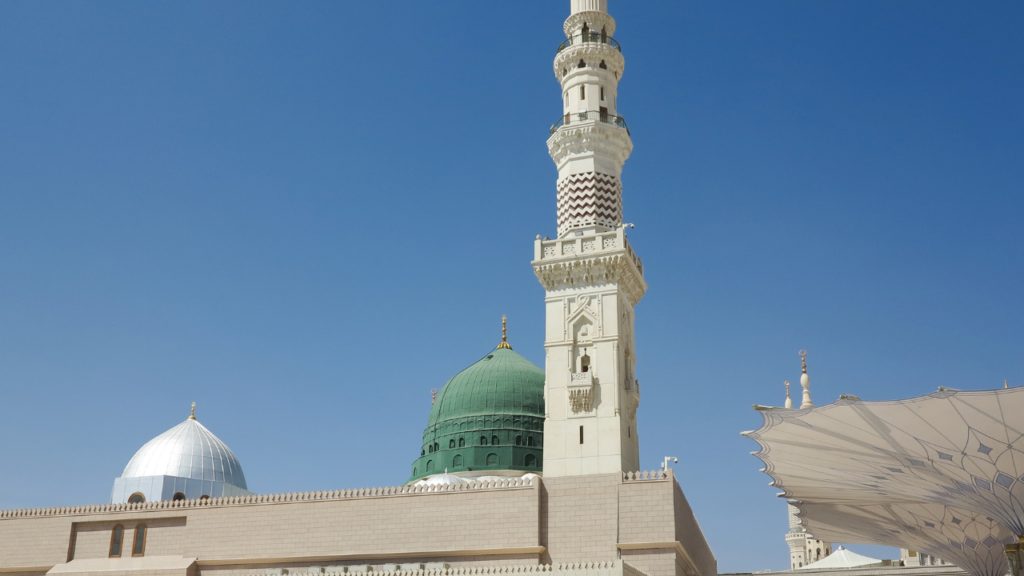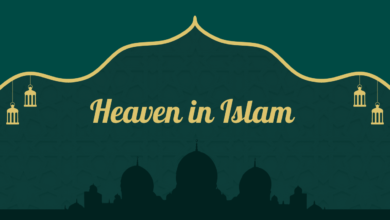
Hafsa bint Umar
Hafsa bint Umar was a prominent figure in Islamic history. She was the daughter of Umar ibn al-Khattab, the second caliph of Islam, and one of the wives of the Prophet Muhammad (peace be upon him).

Introduction
In the annals of Islamic history, Hafsa bint Umar holds a special place as a remarkable woman of great knowledge, piety, and resilience. Born into a noble and esteemed family in the early days of Islam, her life is a testament to the profound impact that women had on the nascent Muslim community. Hafsa’s story resonates through the ages, serving as an inspiration for generations of Muslims and a reminder of the importance of female scholars and leaders in the Islamic tradition.
Early Life and Family Background
Hafsa bint Umar was born in the year 605 CE, just a few years before the prophethood of Muhammad (peace be upon him). She was the daughter of one of the most prominent figures in Islamic history, Umar ibn al-Khattab, who would later become the second caliph of Islam. Her mother, Zainab bint Maz’un, was a close relative of the Prophet Muhammad. This noble lineage played a significant role in shaping Hafsa’s character and her destiny.
Growing up in such a distinguished household, Hafsa had the privilege of being exposed to the teachings of Islam from an early age. Her father, Umar, was known for his deep commitment to the faith, and it was under his guidance that Hafsa developed a strong sense of piety and devotion.
Also check.
- Why did Islam Spread So Quickly?
- Why Does Allah Test Us?
- What is Gambling in Islam?
- Why is Hajj Important?
- When is 12 Rabiul Awal?
Marriage to the Prophet Muhammad
Hafsa’s life took a significant turn when she was married to the Prophet Muhammad (peace be upon him) after the death of her first husband, Khunais ibn Hudhaifa. Her marriage to the Prophet was not only a great honor but also a responsibility that she embraced with dedication. Hafsa was known for her piety, intelligence, and commitment to preserving the Quran.
One of her most significant contributions to Islam was her role in the preservation of the Quran. She was one of the few individuals who had memorized the entire Quran during the lifetime of the Prophet Muhammad. After his death, when the Quran was compiled into a single written form, Hafsa’s knowledge was invaluable in ensuring the accuracy and completeness of the text.
Hafsa as a Scholar and Educator
Hafsa’s scholarly pursuits did not end with the Quran. She was known for her deep understanding of Islamic jurisprudence and traditions. Many companions of the Prophet, including her father Umar, would seek her guidance on matters of Islamic law and interpretation. Her home became a center of knowledge and learning in the early Islamic community.
Hafsa’s commitment to education extended beyond her immediate family. She played a pivotal role in educating and nurturing the next generation of Muslims. Her students included her nephew Abdullah ibn Umar, who became a renowned scholar and jurist in his own right. Hafsa’s dedication to imparting knowledge exemplified the Islamic value of seeking knowledge and sharing it with others.
Resilience and Strength
Hafsa’s life was not without its challenges. She faced personal tragedies, including the loss of her first husband and her father, Umar, who was assassinated during his caliphate. Despite these hardships, she remained steadfast in her faith and commitment to Islam. Her unwavering strength and resilience serve as an inspiration to Muslims facing adversity, reminding them of the importance of patience and trust in Allah.
Legacy and Inspiration
Hafsa bint Umar passed away in the year 665 CE, leaving behind a lasting legacy of knowledge, piety, and devotion to Islam. Her contributions to the preservation of the Quran and her role as a scholar and educator continue to inspire Muslims around the world. She stands as a symbol of the important role that women have played throughout Islamic history, not only as caregivers but as scholars, leaders, and pillars of the faith.
In a world where the voices and contributions of women are increasingly recognized and celebrated, Hafsa bint Umar’s story serves as a testament to the fact that women have always been an integral part of the Islamic tradition. Her life teaches us the importance of seeking knowledge, upholding the values of Islam, and remaining steadfast in the face of adversity. Hafsa’s legacy lives on as an enduring source of inspiration for Muslims, both men and women, who strive to emulate her devotion and commitment to the faith.

FAQs
Who was Hafsa bint Umar?
Hafsa bint Umar was a prominent figure in Islamic history. She was the daughter of Umar ibn al-Khattab, the second caliph of Islam, and one of the wives of the Prophet Muhammad (peace be upon him).
What is Hafsa bint Umar best known for?
Hafsa is best known for her role in preserving the Quran. She was one of the few individuals who had memorized the entire Quran during the lifetime of the Prophet Muhammad, and her knowledge was crucial in ensuring the accuracy of the Quranic text.
What was Hafsa bint Umar’s relationship with the Prophet Muhammad?
Hafsa was one of the wives of the Prophet Muhammad (peace be upon him). She married him after the death of her first husband, Khunais ibn Hudhaifa, and their marriage is a significant part of her life’s story.
Did Hafsa bint Umar have any contributions to Islamic scholarship?
Yes, Hafsa was known for her deep understanding of Islamic jurisprudence and traditions. Many companions of the Prophet sought her guidance on matters of Islamic law and interpretation. She also played a role as an educator, nurturing the next generation of Muslims in matters of faith and knowledge.
What challenges did Hafsa bint Umar face in her life?
Hafsa faced personal tragedies, including the loss of her first husband and the assassination of her father, Umar ibn al-Khattab, during his caliphate. Despite these hardships, she remained steadfast in her faith and commitment to Islam.
What is Hafsa bint Umar’s legacy in Islam?
Hafsa’s legacy includes her contributions to Quranic preservation, her role as a scholar and educator, and her unwavering commitment to Islam. Her life serves as an inspiration for Muslims, highlighting the importance of knowledge, piety, and resilience.
When did Hafsa bint Umar pass away?
Hafsa bint Umar passed away in the year 665 CE.
Is Hafsa bint Umar mentioned in the Quran?
Hafsa bint Umar is not mentioned by name in the Quran. However, her role in preserving the Quranic text is well-documented in Islamic history and traditions.
Are there any books or biographies written about Hafsa bint Umar?
Yes, there are several books and biographies that include information about Hafsa bint Umar’s life and contributions to Islam. These sources provide valuable insights into her role in early Islamic history.
What lessons can we learn from Hafsa bint Umar’s life?
Hafsa’s life teaches us the importance of seeking knowledge, upholding the values of Islam, and remaining steadfast in the face of adversity. Her legacy is a reminder of the vital role that women have played in Islamic history as scholars, leaders, and pillars of the faith.




